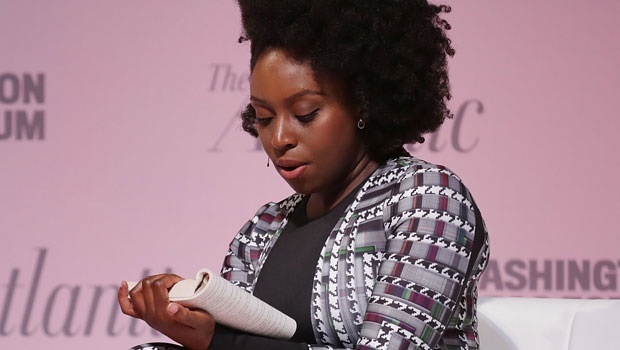
Following the launch of her newest book, Dear Ijeawele, author and feminist, Chimamanda Ngozi Adichie went on a televised interview with the UK’s Channel 4 News to discuss issues of gender and feminism. After some discussion of the purpose of feminism in this age, the interviewer asks Adichie:
"If you’re a trans woman who grew up identifying as a man, who grew up enjoying the privileges of being a man, does that take away from becoming a woman? Are you any less of a real woman."
It seemed to me a strange question that hadn’t followed from anything that Adichie had been asked prior to this. Yet, Adichie’s answer was as problematic:
"My feeling is that trans women are trans women. I think the whole problem of gender in the world is about our experiences. It’s not about how we wear our hair or whether we have a vagina or penis, it’s about the way the world treats us.
"I think if you’ve lived in the world as a man, with the privileges that the world accords to men, and then changed/switched gender it’s difficult for me to accept that then we can conflate your experience with the experience of a woman who has lived from the beginning in the world as a woman, and who has not been accorded those privileges that men are… "
The article provoked significant outcry amongst trans feminists online, which provide important critiques of what Adichie had said. There is a really good interview to listen to here that provides more important critique and discussion of these issues if you have more time than this short blog post affords.
These are a few of the things that are being critiqued:
- The issue is not that there is not a different experience but that Adichie seems to mark cis women as "real" women; the assumption that trans women have the same access to male privilege as cis men.
See Laverne Cox's response here.
- Giving people the space to define their gender identity should be part of feminist promotion of bodily autonomy and self-determination
- The absence of an intersectional nuanced analysis of power.
- The lack of any critique of the binary model of gender.
I think that a helpful starting point for discussion is the issue of respect and language.
In a recent project I was working on, two incredible people pointed out the errors I was making in my own attempt to be inclusive with language.
This was an extremely kind and helpful thing for them to do. I felt shame that I had hurt others with my failure to say the right thing, despite having the best intentions. When I expressed the sentiment that I felt like I had let myself and them down by not using the right words, and not responding fast enough to their feedback, one of my friends replied,
“None of us has this knowledge [of the right language] innately…I wish we all approached the world with that kind of willingness to say ‘I don’t know’.”
Read more: Intersex non-binary, cisgender, queer, transgender - what it all means
Sometimes, we don’t say the right thing. Sometimes we make mistakes when talking about gender or any other social issue. The important thing is to admit it, try to understand what you have done wrong if you are unsure, and most importantly to try to learn how to correct it.
It’s important not to assume you’re the expert on everything just because you are a feminist, or because you ‘get’ social issues. It’s okay to admit that you don’t know, and to try to ask politely when given the opportunity.
So, if you’re new to (or experienced at) trying to talk about and understand conversations about sex and gender, here is a glossary of terms so that you can try to begin to understand the terms of the discussion, and treat people with respect.
At the end of the interview, Adichie is asked whether she embraces the role that she has been given as feminist brand ambassador. Though she smiles and chuckles, her answer is “No…I don’t feel that I’m the authority on feminism and I don’t necessarily want to be.”
There is no joy in being tasked with speaking for more than half of the world’s population. Yet, perhaps next time when she is asked to speak on issues of trans women, Adichie will take the opportunity to suggest that the interviewer asks trans women to speak on their own issues, rather than assuming a cis woman is the authority.




 Publications
Publications
 Partners
Partners














